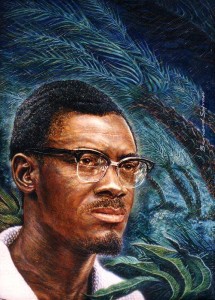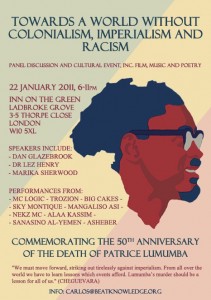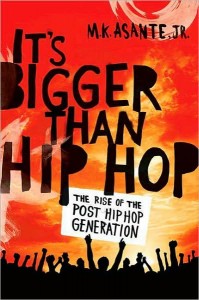Tribute to Patrice Lumumba on the 50th anniversary of his assassination
- January 17th, 2011
- By djmutiny
- Write comment
Malcolm X, speaking at a rally of the Organisation of Afro-American Unity in 1964, described Patrice Emery Lumumba as “the greatest black man who ever walked the African continent. He didn’t fear anybody. He had those people [the colonialists] so scared they had to kill him. They couldn’t buy him, they couldn’t frighten him, they couldn’t reach him.”
This was three years after Lumumba was assassinated by Belgian mercenaries in the breakaway state of Katanga (southern Congo).
Why was Lumumba killed? Because he was a relentless, dedicated, intelligent, passionate anti-colonialist, Pan-Africanist and Congolese nationalist; because he had the unstinting support of the Congolese masses; because he stood in the way of Belgium’s plan to transform Congo from a colony into a neo-colony.
Until the mid-1950s, the nationalist movement had been dominated by the small Congolese middle class. It was not a radical movement; it was composed of clerical workers, mid-level army officers, supervisors and so on, who were getting a cut of the enormous profits Belgium was making out of Congo. They opposed direct colonialism in the sense that they disliked white rule and were sick of being second class citizens in their own country; however, the basic economic institutions of colonialism suited them quite well. They were scared by the Congolese masses – the peasants, the workers, who worked in slave-like conditions for a pittance, and who bore the brunt of the famines and the genocidal actions of the colonisers.
The masses wanted control. They wanted the Belgians out, not just moved from the front seat to the back seat. They didn’t want white oppressors to be replaced with black oppressors; they wanted freedom and justice; they wanted democracy; they wanted nationalisation; they wanted to be listened to; they wanted to rule.
Lumumba was the key figure in mobilising these masses. Joining the nationalist movement around 1955, he quickly grew disillusioned with the middle class elite and addressed himself to the most oppressed sections of society. The peasants and workers of Congo were constantly radicalising him. He developed a clear strategy for total decolonisation, to be brought about on the basis of broad political action by the masses.
In 1958, he and others formed the broad-based Mouvement National Congolais (MNC), which immediately established itself as the key organisation in the struggle against colonial rule.
The Belgians and their friends in the ‘international community’ were shocked by the pace of development of the nationalist movement. In the mid-1950s, Belgium – which had exercised the most vicious, murderous, plunderous rule over Congo – was confident that it would retain its African colony for at least another century. However, by 1959, the MNC had gained such popularity and credibility that the Belgians knew their time was up.
But they had a backup plan: to replace traditional colonialism (white rule, backed by a military occupation) with neo-colonialism (black rule in white interests, backed with Belgian money, advisers and mercenaries). That way, Belgium’s theft of Congo’s sumptuous natural wealth (including massive reserves of coltan, diamonds, copper, zinc and cobalt) would continue uninterrupted.
Reading the writing on the wall, the Belgians decided to grant independence much sooner than anybody was expecting, in the hope that they would prevent the further growth of the nationalist movement; that it would be denied the chance to develop a coherent organisational structure and would therefore be heavily reliant on Belgium’s assistance. However, Lumumba had rallied the best elements of the nationalist movement around him and clearly had no intention of capitulating.
At the independence day celebrations on 30 June 1960, Belgian King Baudouin made it perfectly clear that he expected Belgium to have a leading role in determining Congo’s future. In his speech, he chose not to mention such unpleasant moments in history as the murder by Belgian troops of 10 million Congolese in 20 years for failing to meet rubber collection quotas. Instead he advised the Congolese to stay close to their Belgian ‘friends’: “Don’t compromise the future with hasty reforms, and don’t replace the structures that Belgium hands over to you until you are sure you can do better… Don’t be afraid to come to us. We will remain by your side and give you advice.”
He and his cohort were therefore shocked when Lumumba, newly elected as Prime Minister, took the stage and told his countrymen that “no Congolese worthy of the name will ever be able to forget that it is by struggle that we have won [our independence], a struggle waged each and every day, a passionate idealistic struggle, a struggle in which no effort, privation, suffering, or drop of our blood was spared.”
Referring clearly to Belgium, Lumumba stated that “we will count not only on our enormous strength and immense riches but on the assistance of numerous foreign countries whose collaboration we will accept if it is offered freely and with no attempt to impose on us an alien culture of no matter what nature”.
Lumumba, caring nothing for being polite to the Belgian dignitaries in the audience, concluded: “Glory to the fighters for national liberation! Long live independence and African unity! Long live the independent and sovereign Congo!”
Ludo de Witte writes of this historic speech: “Lumumba [spoke] in a language the Congolese thought impossible in the presence of a European, and those few moments of truth feel like a reward for eighty years of domination. For the first time in the history of the country, a Congolese has addressed the nation and set the stage for the reconstruction of Congolese history. By this one act, Lumumba has reinforced the Congolese people’s sense of dignity and self confidence.” (The Assassination of Lumumba)
The Belgians, along with the other colonialist nations, were horrified at Lumumba’s stance. The western press was filled with words of venom aimed at this humble but brilliant man – a man who dared to tell Europe that Africa didn’t need it. The French newspaper ‘La Gauche’ noted that “the press probably did not treat Hitler with as much rage and virulence as they did Patrice Lumumba.”
In the first few months of independence, Belgium and its western allies busied themselves whipping up all kinds of political and regional strife; this led to pro-Belgium armies being set up in the regions of Katanga and Kasai and declaring those regions to be independent states. This was of course a massive blow to the new Congolese state. Meanwhile, behind the scenes, the Belgians (along with their friends in France and the US, and with the active support of the UN leadership) developed plans for a coup d’etat that would remove Lumumba from power. This was effected on 14 September, not even three months after independence.
But even under house arrest, Lumumba was a dangerous threat to colonial interests. He was still providing leadership to the masses of Congolese people, and he still had the support of the majority of the army. Therefore the Belgians connived with the CIA and with their Uncle Tom stooges in Congo to murder Lumumba. That Belgium is most responsible for Lumumba’s death is amply proven in Ludo De Witte’s book, The Assassination of Lumumba. Furthermore, the UN leadership was complicit, in the sense that it could very easily have put a stop to this murderous act.
Lumumba, along with three other leading nationalists, was assassinated by firing squad (led by white Belgian officials in the Katangan police force), after several days of beatings and torture.
When the news of Lumumba’s murder broke, there was outrage around the world, especially in Africa and Asia. Demonstrations were organised in dozens of capital cities. In Cairo, thousands of protesters stormed the Belgian embassy, tore down King Baudouin’s portrait and put Lumumba’s up in its place, and then proceeded to burn down the building.
Sadly, with Lumumba and other leading nationalists out of the way, the struggle for Congo’s freedom suffered a severe setback which was not to be reversed for over three decades.
There are a lot of important lessons to learn from this key moment in the history of anti-colonial struggle; lessons that many people have not yet fully taken on board. As Che Guevara said: “We must move forward, striking out tirelessly against imperialism. From all over the world we have to learn lessons which events afford. Lumumba’s murder should be a lesson for all of us.”
To this day, western governments and media organisations use every trick in the book to divide and rule oppressed people, to stir up strife, to create smaller states that can be more easily controlled. To this day, they use character assassination as a means of ‘justifying’ their interventions against third world governments – just look at how they painted Aristide in Haiti, or how they paint Chavez, Castro and many others. To this day, ‘UN intervention’ often means intervention on the side of the oppressors. To this day, the intelligence services use every illegal and dishonest means to destabilise and cause confusion. We all fall for these tricks far too often.
On the bright side, the past decade has been one of historic advances; advances that point the way towards a different and much brighter future. The political, economic, military and cultural dominance of imperialism is starting to wane. As Seumas Milne pointed out at the recent Equality Movement meeting, the war on terror has exposed the limits of western military power. Meanwhile, the economic crisis has started to discredit the entire neoliberal model. The rise of China, the wave of progressive change in Latin America, the emergence of other important third world players – these all indicate a very different future.
In Congo itself, progress is being made, although it often seems frustratingly slow (principally because the west is still sponsoring armies in support of its economic interests). But, as De Witte writes, “the crushing weight of the [Mobutu] dictatorship has been shaken off”. We can’t overstate the importance of this step.
As we all move forward together against imperialism, colonialism and racism, we should keep Lumumba’s legacy in our hearts and minds.
“Neither brutal assaults, nor cruel mistreatment, nor torture have ever led me to beg for mercy, for I prefer to die with my head held high, unshakable faith and the greatest confidence in the destiny of my country rather than live in slavery and contempt for sacred principles. History will one day have its say; it will not be the history taught in the United Nations, Washington, Paris, or Brussels, however, but the history taught in the countries that have rid themselves of colonialism and its puppets. Africa will write its own history and both north and south of the Sahara it will be a history full of glory and dignity … I know that my country, now suffering so much, will be able to defend its independence and its freedom. Long live the Congo! Long live Africa!” (Lumumba’s last letter to his wife, Pauline).
—————-
If you’re in London, be sure to attend this event on Saturday:
Commemorating the 50th anniversary of the death of Patrice Lumumba
Towards a world without colonialism, imperialism and racism.
Saturday 22 January 2011, 6-11pm
Inn On The Green, Ladbroke Grove
3-5 Thorpe Close, W10 5XL
Map: http://tinyurl.com/23a332o
Speakers include:
- Dr Lez Henry (author, social anthropologist and community activist)
- Marika Sherwood (author and historian).
- Dan Glazebrook (radical journalist)
Performers include:
- MC Logic
- Trozion
- Big Cakes
- Nekz MC
- Asheber
- Sky Montique
- Mangaliso Asi
- Alaa Kassim
- Sanasino Al-Yemen
More information can be found at the Facebook event page.



